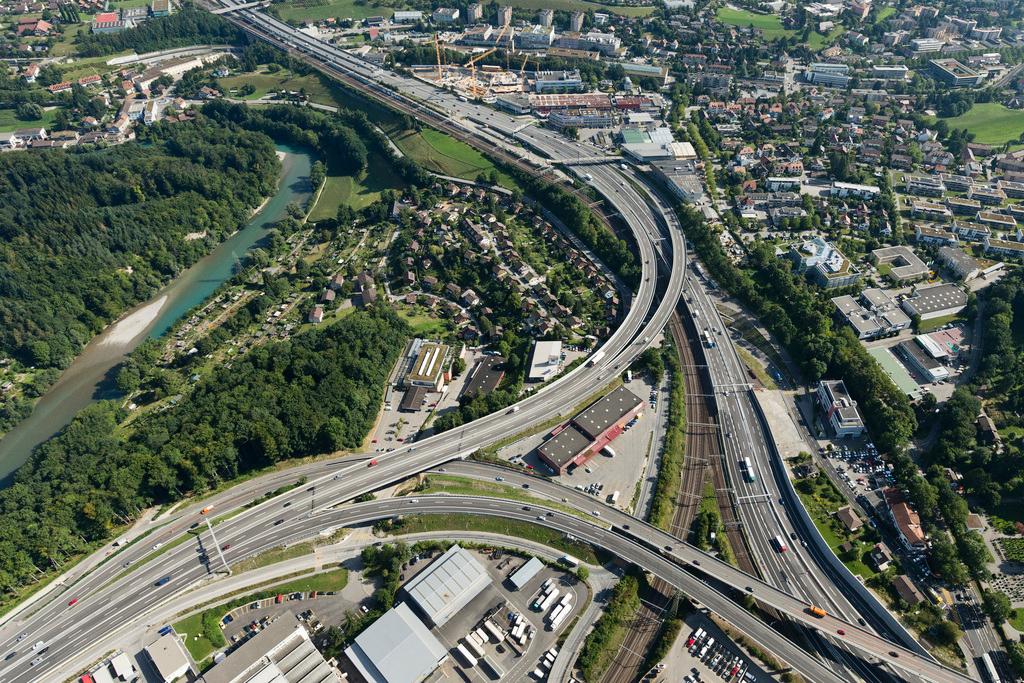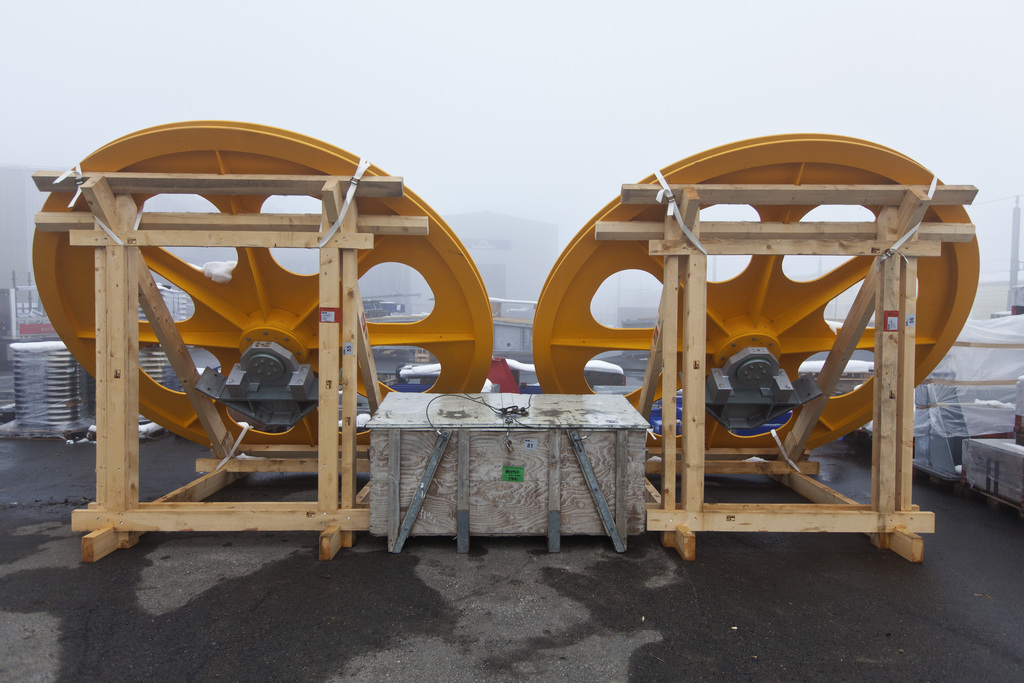Business leaders downgrade Switzerland in IMD rankings

Switzerland has dropped from 2nd to 4th in the annual IMD World Competitiveness rankings. The Swiss National Bank’s decision in January to abandon the euro peg was the likely reason, says Arturo Bris, director of the IMD World Competitiveness Center.
The 2015 overall ranking of 61 countries takes into account more than 300 criteria divided into four categories. Overall, Switzerland ranked second in the category “infrastructure”, fifth in government efficiency, sixth in business efficiency, and fourteenth in economic performance.
Around two-thirds of the 300 criteria were based on hard data reflecting things that can be measured − like the unemployment rate. The remaining one-third were based on soft data measuring people’s perceptions of competitiveness − in this case gleaned from an IMDExternal link survey of more than 6,000 international executives.
swissinfo.ch: What do you see as the potential reasons for Switzerland’s slide?
Arturo Bris: The main reason for Switzerland’s drop is quite simple. We conduct our survey among executives typically between the months of February and May. And this year, after what happened in January with the Swiss franc, the sentiment among executives deteriorated massively. For example, questions like “What is the resilience of the Swiss economy?” − which in the past tended to have amazing responses among Swiss executives − now they have a more negative view. So I would say there is a negative perception among the corporate class in Switzerland regarding the future of the Swiss economy.

swissinfo.ch: And it doesn’t have to do with the previous year, when there was the vote about immigration?
A.B.: No. In fact, if you look at the macro figures, at the hard data from Switzerland from 2014, they are all very solid. Most of the indicators that have to do with monetary policy, central bank policy, flexibility, resilience of the economy − these are the ones that have suffered the most. And I perceive that it is mostly driven by the Swiss National Bank decision [to stop artificially maintaining the franc’s value against the euro] .
swissinfo.ch: What then are Switzerland’s biggest strengths?
A.B.: Switzerland is the most innovative country in the world, and it has amazing infrastructure. That means not only basic infrastructure − roads, highways, ports − but also education, health systems, scientific infrastructure. In all of these pillars, Switzerland ranks top in the world. And I would say that this is primarily the strength of the Swiss economy.
swissinfo.ch: You’ve said that competitiveness “does not result in winners and losers: when two countries compete, both are better off.” How does competition improve productivity and efficiency?
A.B.: Competitiveness at the country level is not the same as competition at the company level. Competitiveness is about the ability of a country to create value, either by companies or by people. The key to it is trade. So when two countries trade, it’s pure macroeconomics − trade benefits both countries. I think that’s important to understand. Competitiveness should not create conflict among countries, who say “I want to be more competitive at your expense.” It’s not about competition; it’s about cooperation.
swissinfo.ch: How does a strong organisational structure help workforces thrive? I would have thought a loose structure would lead to more innovation.
A.B.: For a company, competitiveness requires long-term sustainability and value creation. So, to stay in business for the long run. And what we mean by strong organisational structures, it’s not about hierarchies. It’s about processes. To have the right innovation processes. It’s true that you can interpret that when you have more flexibility within your organisation, then it’s better. But flexibility is not at odds with having the right processes.
The study we have just released is about countries. Last November we published our study about Switzerland, where we looked at businesses; the competitiveness of Swiss companies. Now we’ll try to put it together this year. So when we talk about countries, we try to say that in order for a country to be competitive, you also need to have competitive companies.
swissinfo.ch: “Sustainability” has become a very popular word. What does it mean for a company or a country?
A.B.: That’s a very good question, because some people understand sustainability as the three P’s − people, profit and planet. Taking care of employment, social concerns and profit. For us, sustainability in the competitiveness context means the ability to create value for the long run. So for a company, it’s the ability to stay in business for the long term. And of course being in business requires you to generate a profit, but also requires you to be socially responsible. For a country, sustainability − the pure meaning of the word − is to what extent a country can sustain long-term growth, so it has nothing to do with social or environmental concerns. It’s a pure value argument. As a country, you cannot pretend that your only objective is social or environmental, because then you are not sustainable.
From top to bottom
The top 10 competitive countries in the IMD World Competitiveness rankings were the United States (1), Hong Kong (2), Singapore (3), Switzerland (4), Canada (5), Luxembourg (6), Norway (7), Denmark (8), Sweden (9) and Germany (10). At the bottom were Mongolia (57), Croatia (58), Argentina (58), Ukraine (60) and Venezuela (61).
Respondents to the Executive Opinion Survey were asked to select five “key attractiveness indicators” for their country from a list of 15. Switzerland’s top five were policy stability and predictability (70.7%), skilled workforce (62.1%), reliable infrastructure (54.5%), high educational level (49.6%) and competitive tax regime (48.2%).
According to the Lausanne- and Singapore-based business school, “enterprises operate in a national environment which enhances or hinders their ability to compete domestically or internationally”. Competitiveness “determines how countries, regions and companies manage their competencies to achieve long-term growth, generate jobs and increase welfare.”

In compliance with the JTI standards
More: SWI swissinfo.ch certified by the Journalism Trust Initiative




You can find an overview of ongoing debates with our journalists here. Please join us!
If you want to start a conversation about a topic raised in this article or want to report factual errors, email us at english@swissinfo.ch.